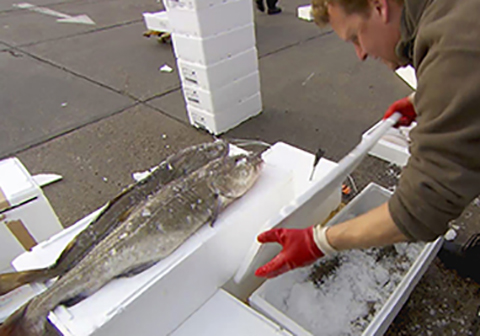The Ellen MacArthur Foundation is one of the most important charities in the world developing and promoting the concept of a circular economy by working with businesses, policymakers and academics. On 30 March 2023, the Foundation published its “Plastic Initiative 2023 Recycling Rate Survey” in which Expanded Polystyrene (EPS) for insulated and protective packaging is no longer covered by the “Global Commitment”, as it is recognised by the Ellen MacArthur Foundation that EPS transport packaging (insulated and protective) is recycled at “scale and in practice” across the world. This a step forward for EPS industries which put sustainability and circular economy at the core of their ambitions for a better Europe.

The Ellen MacArthur Foundation sets very specific criteria when it comes to validating the recyclability of plastic materials: “The test and threshold to assess if the recyclability of a packaging design is proven ‘in practice and at scale’ for the Global Commitment are: does that packaging achieve a 30% post-consumer recycling rate in multiple regions, collectively representing at least 400 million inhabitants?”, defines the Foundation. These criteria are applied by United Nations Environmental Programme in the negotiations regarding the International Treaty on Plastic Pollution, a legally binding agreement on plastic pollution by 2024 agreed by 175 nations across the world.
Through an initiative of the National Association EPS-branchen (Denmark) which met with the Ellen MacArthur Foundation to discuss the properties of EPS, the data shared by the EPS industry was considered by the Foundation and proved that EPS used for insulated and protective packaging meets the criteria to validate the recyclability of material at “scale and in practice”.
Indeed, in the European Union, the EPS post-consumer packaging recycling rate is approximately 40%, while in North America the recycling rate exceeds 30% (above 50% for Japan, China and South Korea). Some European countries shine with excellent recycling rates: in Norway, for instance, the recycling rate exceeds 70% while in Denmark, Portugal, Belgium, Austria and Ireland the recycling rate is above 50%. Furthermore, EPS recycling rates also exceeds 30% in Brazil.
After having reviewed the data presented, the Ellen MacArthur Foundation acknowledged EPS fish boxes and white goods EPS protective packaging are indeed not only recyclable, but actually recycled. EPS Branchen, EUMEPS member and Danish EPS National Association, published a detailed memo on the matter.
All data submitted via government sources also showed that EPS post-consumer recycling covers 35 countries from 4 global regions with a population of at least 4.2 billion people, thus surpassing the criteria of 400 million set by the Ellen MacArthur Foundation by 650%. Not only does the EPS industry for insulated and protective packaging meet these criteria, but it also surpasses them!
Moreover, when applying the Ellen Macarthur Foundation criteria to compare the population with the assessment of recycling for other packaging materials, EPS post-consumer recycling is the second most recycled plastic packaging measured by population. If only looking at the government data and population for 2018, then EPS is the third most recycled packaging material in the world. It should also be noted that insulated and protective EPS packaging only represents a marginal share of plastic packaging produced across the world, significantly below 0.2%.
Finally, these excellent results should also be put in perspective with the Conversio study, “The EPS Industry Journey towards Circularity”, published by EUMEPS which also clearly demonstrates the engagement of European EPS industries to recyclability and circularity. Nevertheless, the entire European EPS industry is thrilled to see that efforts made in the last years to keep increasing the recycling of the material to achieve circularity and keep increasing recycling have been recognised by the Ellen Macarthur Foundation.

For information about EUMEPS: eumeps.org































